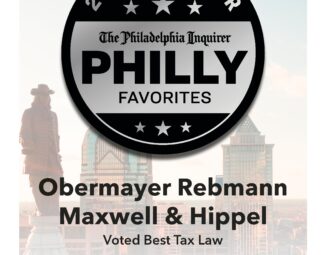Qualified Opportunity Funds: Rental Real Estate Investments – Active Conduct of Trade or Business Test
One of the hottest topics in the real estate right now is the federal Qualified Opportunity Zone program. This program caught the interest of real estate investors because of the potential tax breaks available to those who invest in certain economically underdeveloped areas. To participate in this program, investors must timely invest capital gain proceeds such as those from a sale of property in a Qualified Opportunity Fund (“QO Fund”). The program provides 3 major tax breaks: (i) a tax deferral of up to 7 years on the invested proceeds; (ii) up to a 15% reduction on the tax liability on the invested proceeds; and (iii) a permanent exclusion of the accrued gain from the sale of the QO Fund investment if held for 10 years.
Active Trade or Business Test
Almost anyone may form a QO Fund, but the fund itself must satisfy certain requirements. One of the major requirements is that the QO Fund must hold at least 90% of its assets in Qualified Opportunity Property, which can be in the form of stock, partnership (or LLC) interests and/or other tangible property used in a trade or business. If the QO Fund holds stock or partnership interests, then the underlying business must derive at least 50% of its gross income from the “active conduct of a trade or business”. This requirement is especially troublesome for rental real estate investors because a business receiving only rental income (without more) maybe seen as passive.
It doesn’t help that the tax code has not defined this phrase and the IRS guidance provided to-date has not interpreted it either. Additional guidance was expected earlier this year which might have offered some help, but due to the recent government shutdown the IRS is running behind schedule. In the meantime, tax advisors faced with this issue are searching other parts of the tax code for guidance.
Looking to Old Guidance
One place to look is the interpretive guidance that was issued for the Gulf Opportunity Zone tax credits, IRS Notice 2006-77. The Notice provided that the determination of whether there is an active conduct of a trade or business is based on all the facts and circumstances. A pass-through entity such as a partnership is generally treated as actively conducting a trade or business if the partnership “meaningfully participates” in the management or operations of the trade or business. If the partnership is meaningfully participating then such active treatment passes through so that each equity partner is also treated as actively conducting the trade or business. This principle is very helpful since it applies not only to partnerships but also to LLC members or S corporation shareholders. In determining whether a partnership is meaningfully participating in management and operations, not only are its own activities considered but also the activities performed by others “on behalf of” the partnership.
Notice 2006-77 also provided two examples where a partnership’s participation in the management and operations of a building was determined to “meaningful”:
- Apartment Building. An LLC constructs and places in service a new apartment building. One member of the LLC “manages and operates” the apartment building for the LLC.
- Office Buildings. A partnership constructs and places in service two new commercial buildings and leases these buildings to an unrelated lessee who uses the two other buildings as office space. The lease agreement is not a triple net lease. One of the partnership’s partners manages and operates the two office buildings for the partnership.
In contrast, a partnership which owned a single building that was triple-net-leased to a lessee did not meet the “meaningfully participate” requirement and therefore, was not considered as actively conducting a trade or business. The lessee was responsible under the lease agreement for all of the costs relating to the building (e.g., paying all taxes, insurance, and maintenance expenses).
Looking to New Guidance
More recently, the IRS proposed a safe-harbor for rental real estate enterprises and the issue of “trade or business” for the new 20% deduction provision for pass-through entities. See IRS Notice 2019-07. Although the notice clearly states that the safe harbor will only apply for purposes of the 20% deduction provision, the notice offers clues as to how the IRS may interpret the phrase “active conduct of a trade or business” for QO Funds in a real-estate context.
In order to fit this safe harbor, 250 or more hours of “rental services” must be performed per year for the rental enterprise by the owner or by employees, agents, and/or independent contractors of the owner. This safe harbor cannot be used for triple-net-leased property.
The term “rental services” includes (i) advertising to rent or lease the real estate, (ii) negotiating and executing leases, (iii) verifying information contained in prospective tenant applications, (iv) collection of rent, (v) daily operation, maintenance, and repair of the property, (vi) management of the real estate, (vii) purchase of materials, and (viii) supervision of employees and independent contractors. The term, however, does not include financial or investment management activities, procuring property, studying and reviewing financial statements or reports on operations, planning, managing, or constructing long-term capital improvements, or hours spent traveling to and from the real estate.
Conclusion
On one end of the spectrum, it is clear that the mere ownership of vacant land or triple-net-leased property is not an “active conduct of a trade or business” for QO Fund purposes. On the other end of the spectrum, if a partnership or one of its partners provides substantial “rental services” for the real estate, it is clear that the partnership and each of its partners should be treated as engaged in the “active conduct of a trade or business” for QO Fund purposes.
For those situations that fall in the middle of the spectrum, until additional QO Fund IRS guidance is issued, taxpayers will need to call their tax advisors to analyze their specific set of facts.
This article was originally published on JD Supra.





